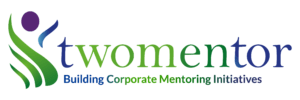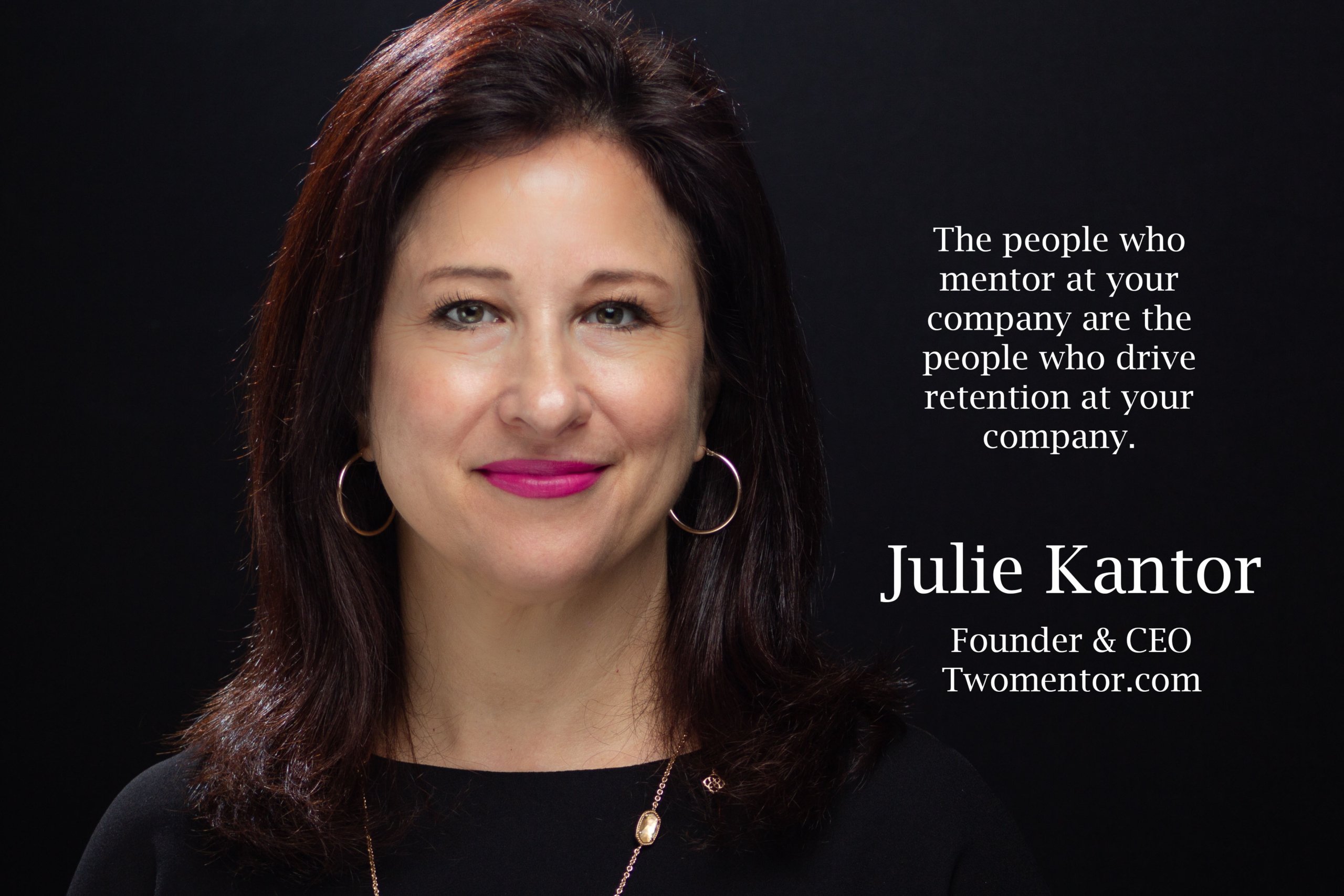Jayla, age 15, needs role models to show her viable career options and visions of what she can become. She would like to job shadow a successful woman who came to speak at her school to learn how she started her own technology firm.
Margaret, age 20, needs both role models and mentors to really talk things through, set some plans in motion, and help her understand her own leadership capabilities and where she needs to grow.
Margaret has engaged in her third internship as she understands it is one of the best ways to actively learn, network, and crucial to her workforce prospects. Interning, whether you are in school or a graduate, is a time that Millennials and GenZ heavily rely on mentors and colleagues to teach them the ropes, nuances, politics, and the hard skills.
As Shana, 36, rises through the ranks of corporate America, she might not have the nomenclature but she starts understanding that she needs something else… sponsorship. She needs internal champions to make it as a Partner or to the higher floors. She might see others who started with her going up the escalators at faster rates, and become disillusioned that her superior work doesn’t just speak for itself.
She might quit or go to a new firm that she feels will value her more.
Since starting my own company that focuses on mentorship and sponsorship to elevate women in the workforce (especially in STEM fields), I have learned some valuable lessons and garnered some new insights to share with you.
I have learned that:
– Millennials want to be mentored, and they value it. In fact, Millennials view it as so crucial to their professional success, they will leave a company with a bigger name to find a company that will invest in their learning and development. I often tell my clients ‘Mentor them or lose them.’
– Millennials also want their managers to be mentoring managers. They are looking for transformational managers, not transactional managers.
– Men are naturals when it comes to Sponsorship (to clarify, a mentor speaks to you and advises you, a sponsor is someone who speaks about you behind closed doors. A sponsor will often champion you for promotions, stretch assignments, and might offer air coverage when the going gets tough). When we discuss this topic, so many high-powered women shared with me that they were championed by a male leader.
– Today, women have networks and power. I’d argue that we are incredibly well poised for game-changing breakthroughs in the sponsorship arena, once we better understand it all. In fact, according to economist Sylvia Ann Hewlett, men are 46% more likely to have a high-powered sponsor. In her research, 83% of women do not have sponsors. I read a piece in Harvard Business Review questioning if we are mentoring women but sponsoring men more in the workforce. While discussing this phenomenon, one tech leader said to me, ‘Silicon Valley is built on sponsorship.’ … Fascinating perspective, and if you think about it, the entire “old boys network” is actually built on sponsorship. But ladies, it’s our defining moment to join the party and make things happen for ourselves and others.
As an entrepreneur who is especially passionate about female entrepreneurship, I want to see you succeed at new heights and consider taking the elevator if the escalator has been a total drag. I want to encourage here a ‘’stretch assignment’’ for you and your close networks to try on for size: Co-sponsorship. I have found that men have been willing to sponsor us (women entrepreneurs) at higher rates, but that Co-Sponsoring with other high potential women is a great way to go. In my experience, it has been so mutually valued and has yielded all kinds of incredible opportunities including client relationships, new jobs and more.
To get started, you do need to be fairly confident with your own network. You need to have clear goals personally or professionally that you feel others can help you with.
So skip the escalator, hit the Penthouse floor button and embark on a three month ‘Co-Sponsoring’ Experiment Plan…
WEEK ONE (The Ground Floor): I want you to find 2-3 other women (you can pick a man to!) who are networked and who you really respect. People you already know pretty well. Pick people you feel will make a good impression on others as they have made on you. Perhaps they are doing work or started a company that you really feel has high potential. Perhaps they are a past colleague or you currently serve on a board together. Schedulecalls with them or plan a lunch meeting.
THE FIRST MEETING: Listen for what your colleague needs, where they are at in this stage of their professional lives, and assess if you can truly help them somehow. Could you be a champion for Tanya who wants to speak at the major women’s conference you spoke at last year, or Cynthia who just left her COO job at a major bank and needs access to recruiters and CHRO’s of major companies? Could you advocate for Lynette who is starting a cause to teach tech skills to middle schoolers in your city? While they are talking, jot down 2-4 action items you could take on their behalf and envision introductions you could make or opportunities you could create. You have so much more to offer than you realize, just listen and you will begin to connect the dots.
Next, I want you to SHARE what you are building professionally, what you are most passionate about. Discuss what your needs are, types of companies or people you aspire to work with or be connected with. If necessary, you can add that you are part of this Co-Sponsor experiment and are looking to build a few relationships where “we help each other formally to make things happen!”
Leave the meeting with a gameplan on what you each are comfortable doing. There is nothing wrong with starting with small steps. Keep things low-pressure and have fun with it. Schedule an appointment to follow up and discuss the next leg of the Co-Sponsorship journey within the next 3-4 weeks. So many meetings lose their potential due to lack of follow-up or follow-through.
THE SECOND MEETING (You are Riding Up): Are there any early fruits from your labors? Did you make introductions? If not, do it together while you are on the phone. Remember, you are also accountability partners as you climb together. If you followed up on your meeting one commitments which I hope you did, how did it go? Track carefully what you each agreed to do and where things stand. Feel free to start a shared Google Doc. Often, I will ask my Co-Sponsor(s) to send me some solid wording for how they want to be introduced, and then write to people within my network asking if they are open to an introduction. Most have been! Several times, my Co-Sponsor reached out and didn’t hear back, so I wrote a nice note to nudge the other party that they did agree/wanted to connect as well as if there was anything that I can do to assist.
People really do value being connected to other great people. It’s been actually quite heartwarming and fun to be the connector. The middlewoman. At this stage, you might want to map out a few more action plans and understand any new needs your Co-Sponsor might have. One amazing woman leader I met on Linkedin is speaking at a major conference in Silicon Valley this Spring. After we spoke she contacted the conference organizers and created an opening for me to speak as well… Many entrepreneurs also offer each other financial incentives if business comes in from each others connection. I do, and that creates another level of WIN/WIN in these crucial championing relationships.
THE THIRD & FOURTH MEETINGS : Are you both rising and stronger because you came together? Why not meet somewhere where you can introduce your Co-Sponsor to people or invite her to join a key conference call. Get her a seat at a table that she will benefit from. Bring her to an open board meeting. Introduce her to other key leaders you socialize with. Goodwill begets goodwill. If the relationship is feeling lopsided, think about how you might remedy this and continue tracking and following up. So many people don’t read emails, follow-up in a timely manner or check their Linkedin— Not a problem, just circle back politely. With one of my Co-Sponsors, I received a wonderful client contract immediately from a connection he made but it took three more months until one of my connections became lucrative for him. I sent him 10% of the contract I received to say thanks, something he never asked for, but is part of our business model @Twomentor. Send a plant, a Starbucks card, plan a spa day, show gratitude and continue to keep the ball rolling toward mutual gain. Keep advancing each other, and keep building Co-Sponsorship relationships that focus on abundance, not scarcity. Enjoy your new views and vistas.
I will write more about this topic, but I want to hear from YOU if you want to join in on this learning journey. Keep us posted on your progress and keep moving mountains for great and emerging leaders. Good luck!
Julie Kantor is CEO of Twomentor LLC. She works with major corporations and organizations to build mentoring cultures that retain a diverse skilled workforce. She can be reached through info@twomentor.com











